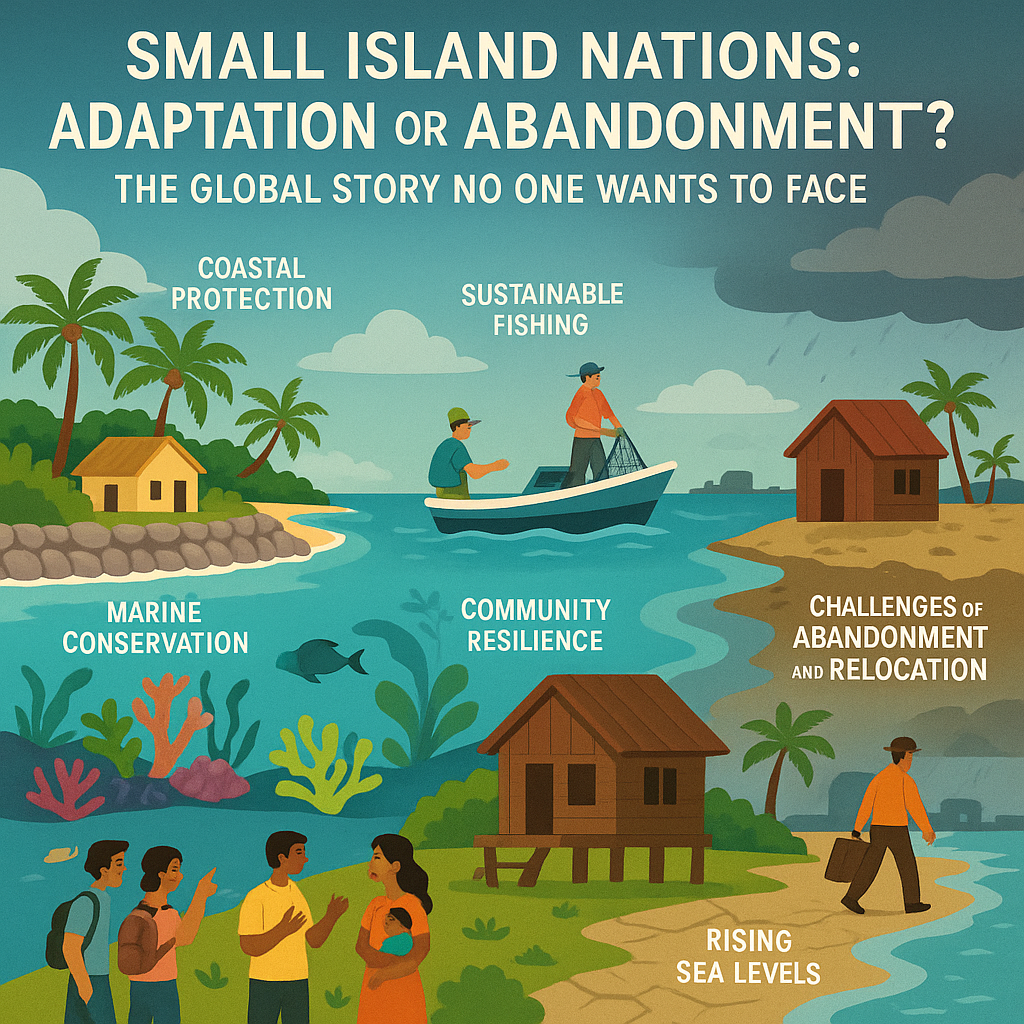-
How are small island nations adapting to climate change?
Small Island Nations: Adaptation or Abandonment? The Global Story No One Wants to Face
Small island nations are often celebrated for their “resilience” in the face of climate change. But the latest evidence from 2025 reveals a far more sobering reality: adaptation is reaching its limits, and for many islands, abandonment is becoming the only option.
Sea level rise is swallowing land faster than ever before. In countries like Kiribati and Tuvalu, saltwater intrusion is ruining crops and freshwater supplies. Mass relocation is now a reality, as entire communities are forced to move. Insurance is unaffordable, and international aid is a trickle compared to the scale of loss.
The mainstream narrative insists that adaptation is possible everywhere. But for many small island developing states, the reality is forced migration, cultural erasure, and legal battles for climate reparations. While wealthy nations invest in seawalls, small islands fight for survival—and for the world’s conscience.
Despite these challenges, small island nations are showing remarkable innovation. They are drawing on indigenous knowledge, fostering strong social networks, and advocating for global action. National adaptation plans, early warning systems, and regional partnerships are helping, but the scale of the crisis demands urgent international support.
Will we keep pretending that “resilience” is enough, or will we face the hard truth that some places cannot adapt to unchecked climate change? The answer will define not just island futures, but our collective humanity.How are small island nations adapting to climate change? Small Island Nations: Adaptation or Abandonment? The Global Story No One Wants to Face Small island nations are often celebrated for their “resilience” in the face of climate change. But the latest evidence from 2025 reveals a far more sobering reality: adaptation is reaching its limits, and for many islands, abandonment is becoming the only option. Sea level rise is swallowing land faster than ever before. In countries like Kiribati and Tuvalu, saltwater intrusion is ruining crops and freshwater supplies. Mass relocation is now a reality, as entire communities are forced to move. Insurance is unaffordable, and international aid is a trickle compared to the scale of loss. The mainstream narrative insists that adaptation is possible everywhere. But for many small island developing states, the reality is forced migration, cultural erasure, and legal battles for climate reparations. While wealthy nations invest in seawalls, small islands fight for survival—and for the world’s conscience. Despite these challenges, small island nations are showing remarkable innovation. They are drawing on indigenous knowledge, fostering strong social networks, and advocating for global action. National adaptation plans, early warning systems, and regional partnerships are helping, but the scale of the crisis demands urgent international support. Will we keep pretending that “resilience” is enough, or will we face the hard truth that some places cannot adapt to unchecked climate change? The answer will define not just island futures, but our collective humanity.0 Комментарии ·0 Поделились ·1Кб Просмотры ·0 предпросмотр
Больше





